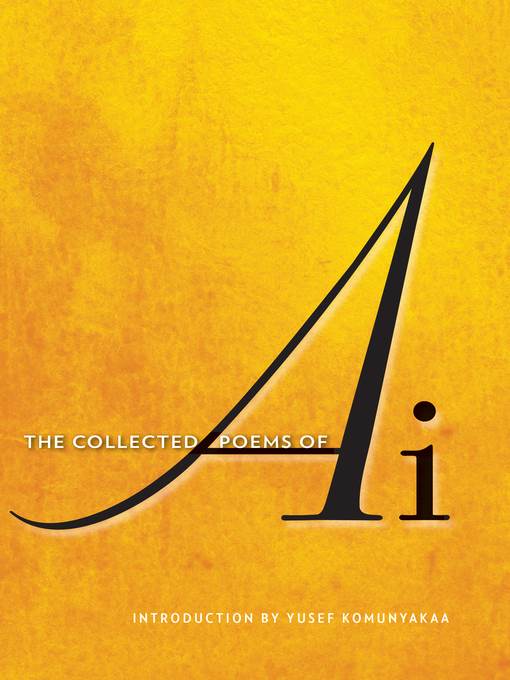
The Collected Poems of Ai
- اطلاعات
- نقد و بررسی
- دیدگاه کاربران
نقد و بررسی

November 26, 2012
Rape, incest, serial killings, tabloid scandal, genocide in Rwanda and on the American High Plains, child sex abuse, corrupt Catholic priests, teen suicide, and ordinary poverty mixed with rural and inner-city violence: Ai’s subjects alone made her poems hard to forget, and her direct treatment of them in unadorned dramatic monologues—some by perpetrators, some by victims, though really in her world most people are both—made her poems hard to ignore, from Cruelty (1973) through seven subsequent volumes before her death in 2010. “The Psychic Detective” remembers “the cold, calculating killer” who left one corpse “with her pubis artistically exposed”; a pregnant teen opens another poem, “I wasn’t wearing anything but my underwear/ when the social worker opened the orphanage door.” Though the poems got longer, their narratives more detailed, as Ai (born Florence Anthony) aged, their core of trauma did not much change. Figures from the beginning and the end of her career reflect her Choctaw, Irish-, Japanese-, and African-American heritage, along with her Oklahoma residence, in raw, sanguinary, anguished stories and lines. If Ai repeated herself in the 1980s and 1990s, her final book, No Surrender (2010), tried hard to vary its tone and its lines, even using rhyme. Doubters can still call her lurid, cartoonish, unartful; fans—among them Yusef Komunyakaa, who contributes an introduction—will continue to find her not just scary but truthful, fierce, and proud.

February 1, 2013
Ai speaks in many voices, making of each poem a dramatic monologue of shocking disclosure. Earthy, furious women. Angry, wistful men. Murderers, rapists, mothers, fathers, children, witnesses, redeemers. The poor, the abused, the displaced, the endangered, the dangerous, the depraved, the compassionate. Her first book was published in 1973, and the titles of the eight collections gathered here in a raucous, confessional, anguished, and bloody chorusCruelty, Killing Floor, Sin, Fate, Greed, Vice, Dread, and the posthumous No Surrenderoffer a key to Ai's harrowing subjects and acute moral calculus. Could it be that Ai's experiences as a person of complex heritage (Japanese, African American, Choctow, Irish) inspired her to take on diverse personae? Born Florence Anthony in 1947, she changed her name to Ai, which means love in Japanese, and annealed love underpins her empathic, emphatic poems. In his penetrating introduction, Pulitzer Prizewinning poet Yusef Komunyakaa writes of the supreme candor and honed toughness that approach transcendence in Ai's poems, which, for all their brutal intimacy, span American history, concentrating its conflagrations like sunlight through a magnifying glass, igniting the page.(Reprinted with permission of Booklist, copyright 2013, American Library Association.)




دیدگاه کاربران